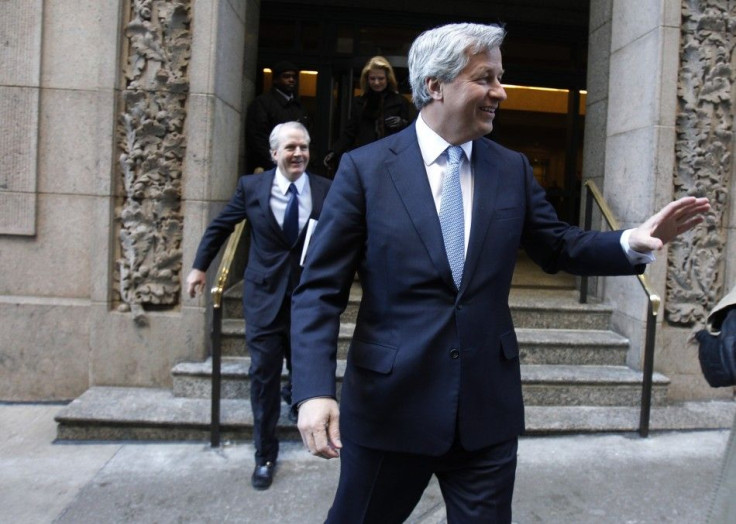JPMorgan Plunges After Potential $3B Loss On Derivative Trading

Shares of J.P. Morgan Chase & Company (NYSE: JPM), the largest U.S. bank by assets, plunged as much as 10 percent Friday after disclosing it likely faces $2 billion in losses for the current quarter, the result of an outsize trading strategy that traders from other financial companies described as a distortion of the market.
Market volatility may cost it an additional $1 billion in second-quarter losses as well, the company said.
By late morning, JPMorgan Chase shares were down $3.06 at $37.68, or 7.5 percent, after falling as low as $36.71 earlier. The bank is the biggest in the U.S.
The losses were considerable enough that the company felt compelled to announce them at a hastily arranged press conference, where Chairman Jamie Dimon admitted they were the result of egregious and self-inflicted mistakes.
The announcement followed the release of the company's SEC 10Q filing, a quarterly form all public companies file with the government, which noted the big losses. Those losses appeared to be the result of a strategy executed from within the firm's treasury, which involved playing the difference between spreads of credit-derivative swaps linked to specific banks and those bundled as part of an investment-grade bond index.
The bank had put so much money into the trade that it was distorting the markets for these instruments, traders told Bloomberg News and the Wall Street Journal in early April, earning the UK-based trader executing the strategy on behalf of J.P. Morgan the pejorative sobriquet of the London Whale.
At the press conference, Dimon said the strategy the company had hoped to take advantage of was flawed, complex, poorly reviewed, poorly executed and poorly monitored and that, as a result, net income in Corporate likely will be more volatile in future periods than it has been in the past.
Dimon also noted that capital ratios at the bank under future Basel III rules, which all major banks are preparing to comply with, would fall to 8.2 percent, from 8.4 in the last reported quarter.
Obviously we should have acted sooner, Dimon said.
Regarding the bank's responses to critics in the financial media who questioned the size of such risky trades, Dimon said, We acted a little too defensively.
The boss, however, did not yield to other critics, who had suggested the bank's massive trading action within its corporate division violated the spirit of the yet-to-be-fleshed-out Volcker Rule prohibiting certain kinds of proprietary trading.
This doesn't violate the Volcker Rule, but it violates the Dimon Principle, said Dimon, who later stated he regretted that the unexpected nature of the losses would empower supporters of stricter bank regulation.
JPMorgan shares nosedived in after-hours trading, falling more than 6 percent to $38.28 per share. Shares of peer institutions also collapsed in the after-hours market. However, Dimon himself noted, just because we were stupid, [that] doesn't mean everybody else was.
By Friday afternoon, shares were down $3.05, or 7.5 percent, to $37.67.
© Copyright IBTimes 2025. All rights reserved.





















